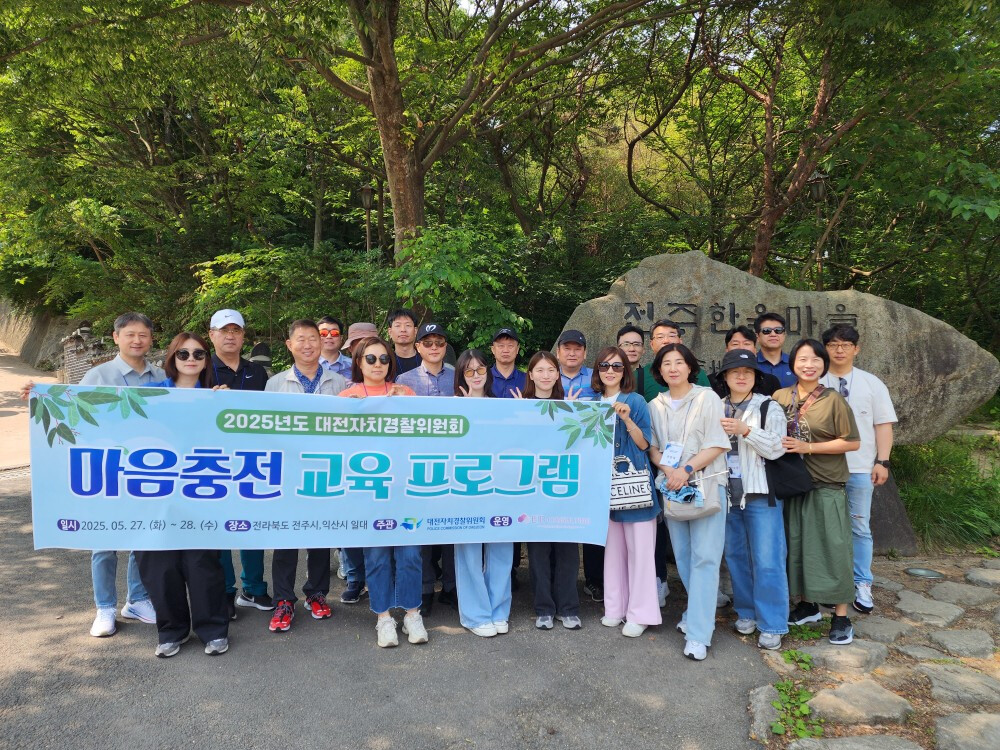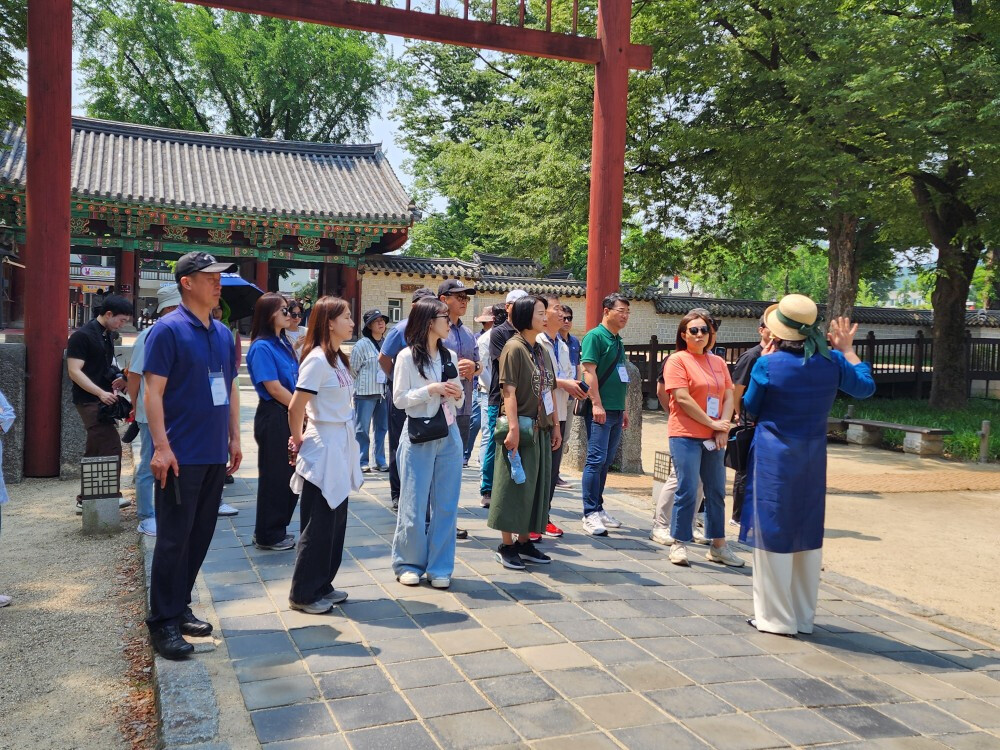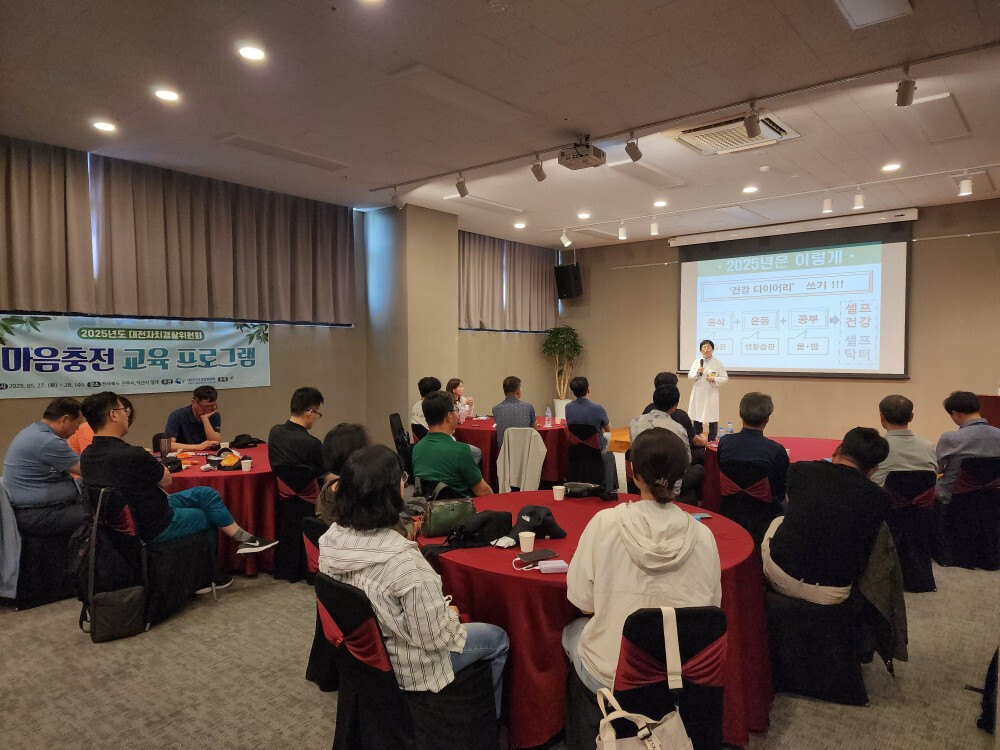
Daejeon, South Korea – The 'Mind Recharge Educational Program,' designed to support the psychological well-being and job satisfaction of Daejeon's local police officers who are exhausted from their frontline duties, has successfully concluded. This program focused on alleviating job stress exacerbated by increased public service and field activities since the launch of the local police system, receiving high satisfaction from participating officers.
The Advent of Local Police and the Need for Psychological Recovery Programs
With the nationwide implementation of the local police system in 2021, police organizations were entrusted with a new mission: providing customized local security services. This new role entailed an increase in direct public interaction and the challenge of resolving various local issues, distinct from traditional national police duties. Specifically, local police handle areas closely related to residents' lives, such as traffic, public safety, women, and youth affairs. They directly communicate with residents and mediate conflicts in the field. In this process, officers are constantly exposed to unpredictable incidents, civil complaints, and emotional labor, leading to high levels of job stress.
In fact, the National Police Agency's 'Police Officer Job Stress Survey' consistently identifies 'excessive workload,' 'malicious civil complaints,' and 'dangerous field situations' as major stressors for police officers. Such job stress can lead to psychological issues like burnout, depression, and anxiety disorders, which in turn not only degrade the quality of life for individual officers but also result in decreased work efficiency and reduced quality of public service. Therefore, maintaining the psychological stability and mental health of police officers has become an indispensable element for providing effective public security services. The Daejeon Metropolitan Police Agency's 'Mind Recharge Educational Program' was planned in response to these contemporary demands.

Structure and Achievements of the 'Mind Recharge' Program
The 'Mind Recharge Educational Program' took place over two days, May 27th and 28th, in Jeonju and Iksan, North Jeolla Province, with 22 police officers from the Daejeon area participating. The program largely consisted of mind-body relaxation and psychological recovery activities, cultural experiences, and opportunities for communication among participants.
On the first day, various activities aimed at police officers' mind-body relaxation and stress relief were conducted. Oriental medicine therapy and meditation with aromatherapy were particularly focused on enhancing psychological stability and relaxing tense bodies through the use of the five senses. These expert-led programs helped participants to escape from daily duties, focus entirely on themselves, and find inner peace. These activities are evaluated as having contributed to calming the excessive arousal states that occur in stressful situations through physical and mental relaxation, and to improving emotional regulation abilities.
Following this, cultural experiences formed a significant pillar of the program. Participants had the opportunity to deeply understand Korean traditional culture and history by exploring Jeonju Hanok Village and the Iksan National Museum with professional guides. Stepping away from the familiar work environment and encountering beautiful nature and cultural heritage provided emotional refreshment and rejuvenation. In particular, listening to the guides' explanations and reflecting on historical meanings and appreciating artistic beauty was effective in increasing participants' cognitive flexibility and inducing positive thinking. These cultural experiences were designed not merely to pass time but to allow police officers to experience various aspects of life and feel emotional richness.
Furthermore, this program was highly significant in that it provided a venue for free communication and empathy among participants. By sharing the difficulties and experiences that come with the unique working environment of being a police officer, participants gained psychological support from each other and strengthened their bonds within the organization. Fostering a sense of community and enhancing understanding of duties through interaction with fellow officers is essential for increasing the cohesion of the police organization and creating a collaborative work environment. These communication sessions served as important elements contributing not only to individual stress relief but also to enhancing the overall health of the organization.

Future Plans and the Importance of Continuous Support
Park Hee-yong, Chairman of the Daejeon Metropolitan Police Agency, stated regarding the successful operation of this program, "We plan to continuously expand regular mind recovery programs in the future so that police officers can healthily perform their duties based on psychological stability." This emphasizes that the mental health management of police officers is not a one-time event but an area requiring continuous support.
Moving forward, the Daejeon Metropolitan Police Agency is expected to develop and operate more diverse and in-depth psychological recovery programs based on the achievements of this program. Specifically, it may expand stress management techniques training, individual counseling support, and visiting psychological counseling services, and if necessary, provide more specialized assistance through linkage with professional psychological counseling institutions. In addition, efforts to improve organizational culture and working environments to prevent job stress should also be carried out concurrently.
The mental health of police officers is not merely an individual issue; it is a crucial matter directly connected to public safety. Only when police officers, who suffer from strenuous work, are psychologically healthy can they provide high-quality public security services to citizens and become trusted police. The Daejeon Metropolitan Police Agency's 'Mind Recharge Educational Program' is evaluated as having recognized this importance and taken a meaningful first step towards the psychological stability of police officers. It is hoped that these efforts will continue to expand, allowing all police officers to dedicate themselves to serving citizens with a healthy mind.
[Copyright (c) Global Economic Times. All Rights Reserved.]






























